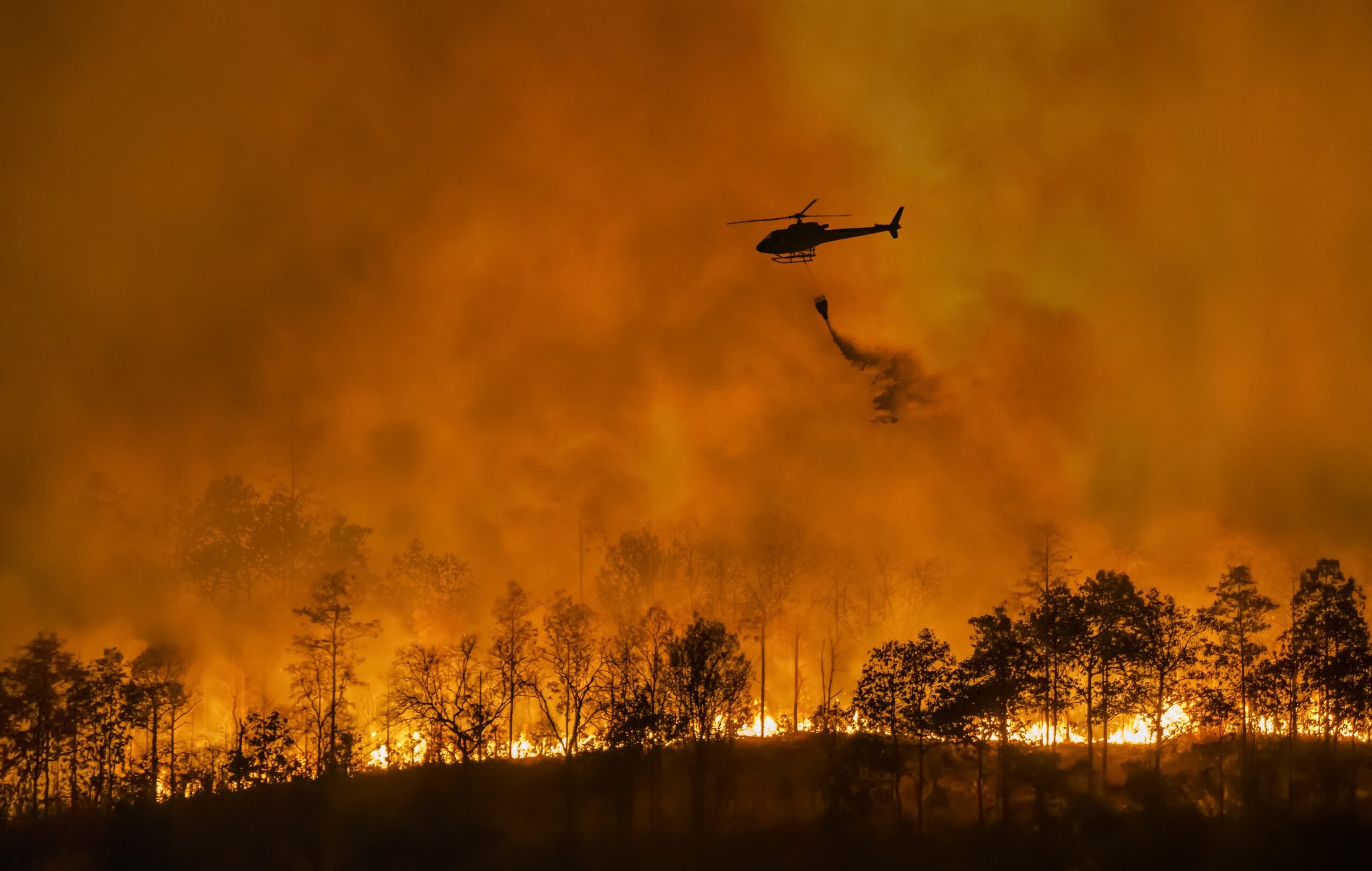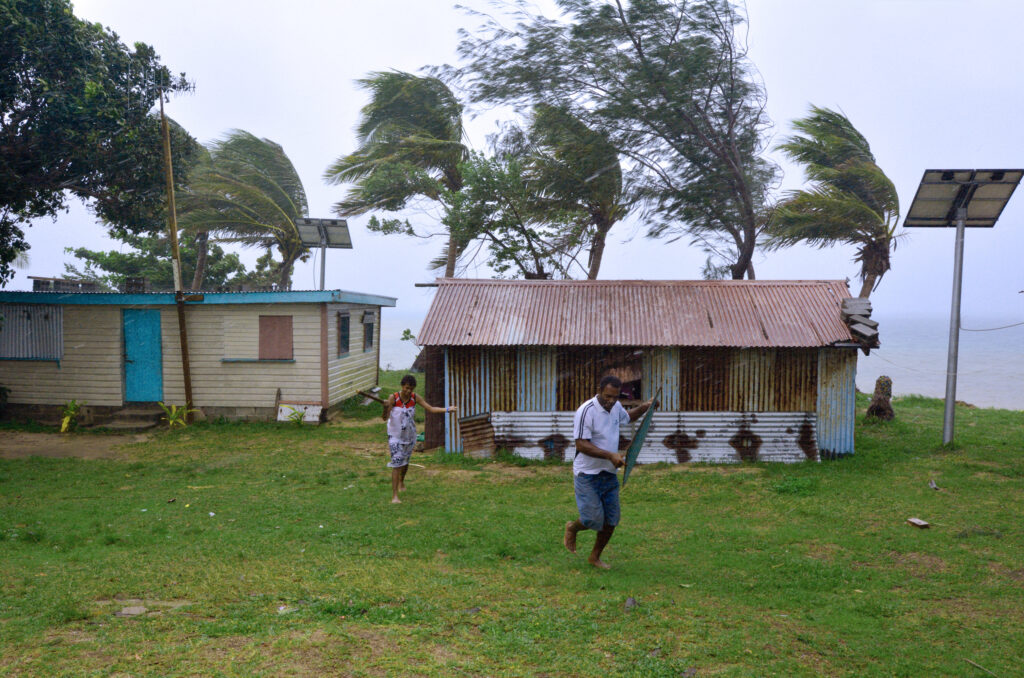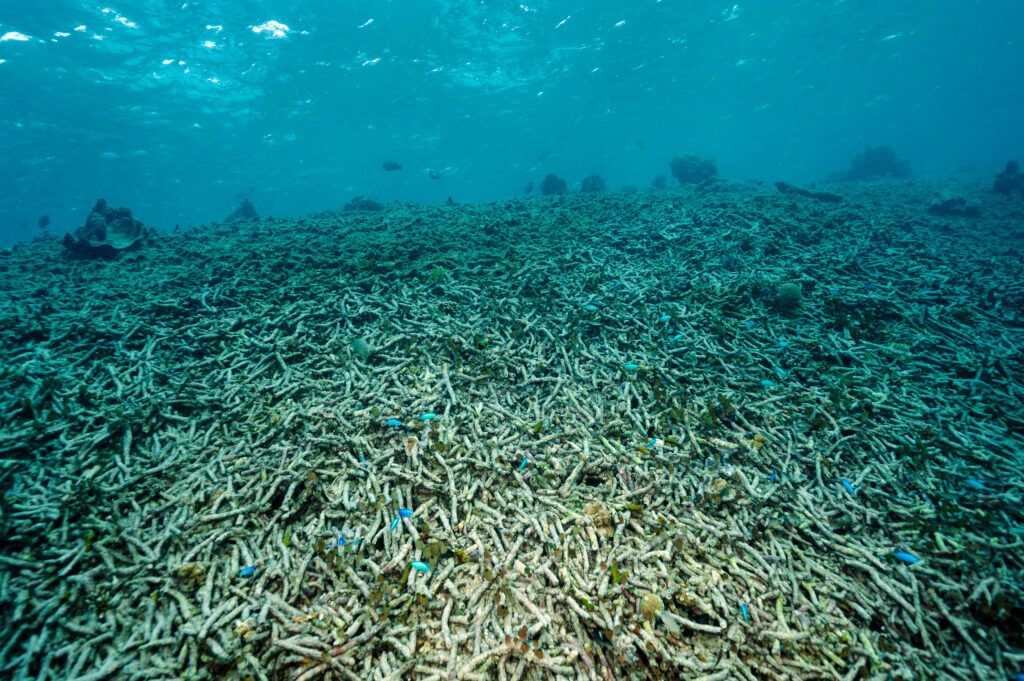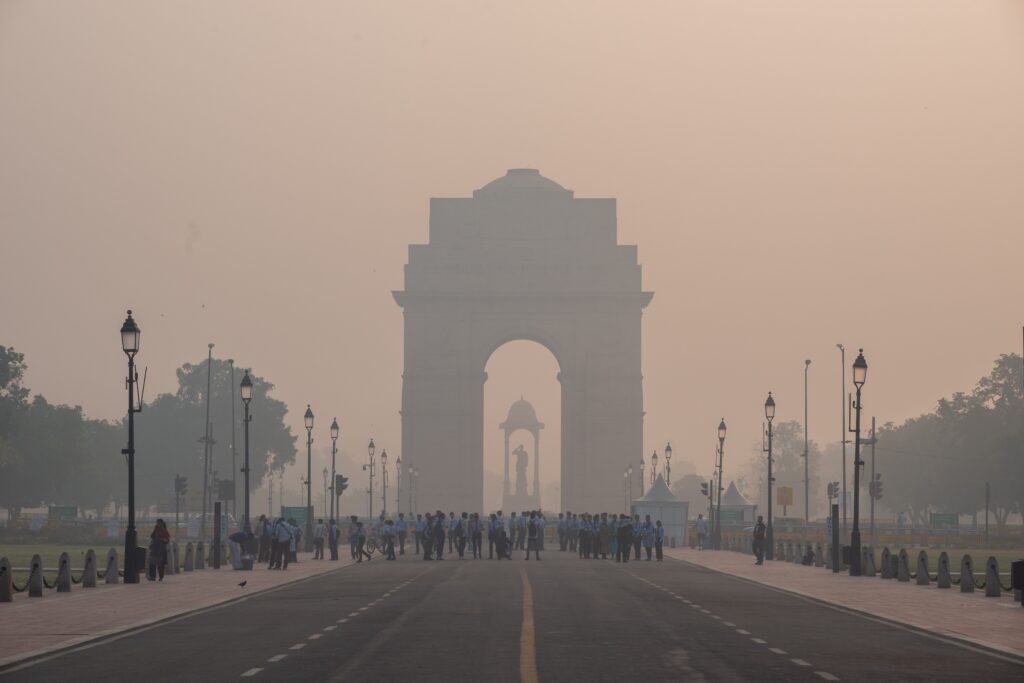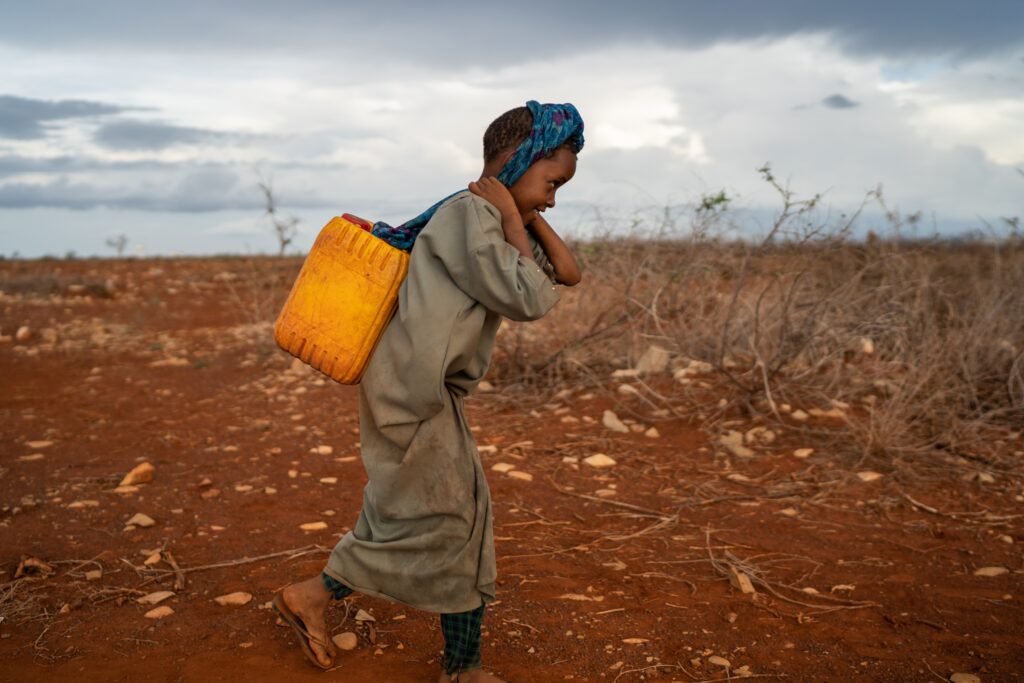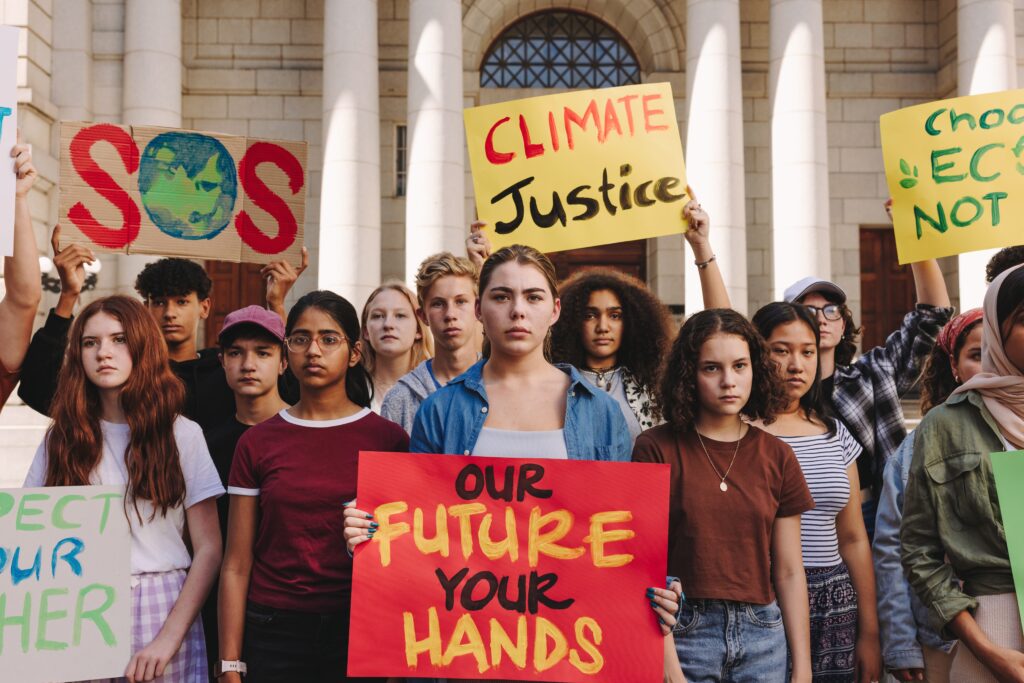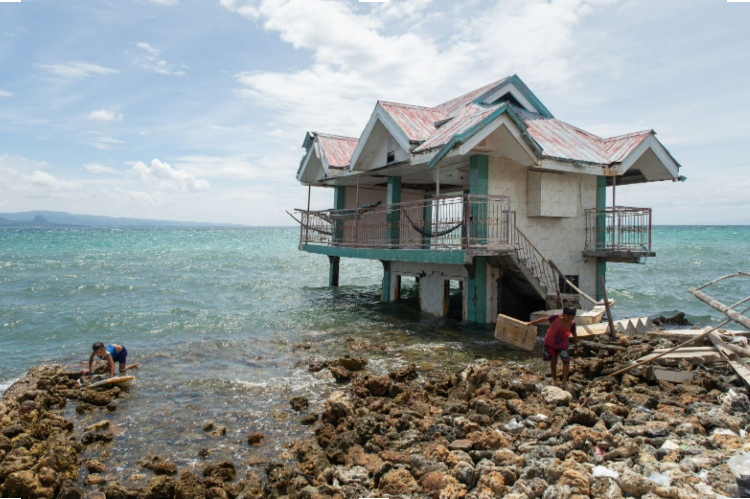As climate disasters grow more frequent and destructive at the hands of fossil fuel companies, local and national governments around the world are struggling to recover and protect vulnerable communities. Increasingly, some are turning to civil lawsuits and “polluter pays” laws to seek compensation from the oil and gas companies most responsible for the crisis.
Holding Fossil Fuel Industry Accountable for Carbon Emissions and Climate Crisis
A landmark study published in Nature in April 2025 may dramatically strengthen those efforts, providing a scientific foundation for holding oil and gas industry financially accountable for specific climate harms. Researchers from Dartmouth College have developed a “transparent, reproducible and flexible framework” that links historical greenhouse gas emissions from individual fossil fuel companies to measurable economic losses caused by climate change, thereby providing a scientific foundation for holding companies financially accountable for specific climate harms.
Senior author Justin Mankin said the findings mark a turning point for climate liability. “We argue that the scientific case for climate liability is closed, even if the future of these cases remains an open question,” he said. “Our framework can provide robust emissions-based attributions of climate damages at the corporate scale. This should help courts better evaluate liability claims for the losses and disruptions resulting from human-caused climate change.”
Spotlight on Polluting Giants Fuelling Climate Damage
The world’s most polluting companies are often the wealthiest, profiting vastly from harm to the climate, environment and communities. The devastating burden of this crisis falls heavily on the world’s poorest populations, and the Dartmouth study reveals just how stark the imbalance is.
Their analysis found that just 111 major producers of oil, natural gas, and coal caused an estimated USD 28 trillion in climate-related damage between 1991 and 2020. Emissions linked to Chevron alone — ranked as the highest-emitting investor-owned company — likely caused between USD 791 billion and USD 3.6 trillion in heat-related economic losses over the past three decades, with the heaviest impacts falling on tropical regions that are least responsible for warming.
“Our findings demonstrate that it is in fact possible to compare the world as it is to a world absent specific emitters,” said report co-author Christopher Callahan.
“The affluence of the Western economy has been based on fossil fuels,” Callahan said, “but just as a
pharmaceutical company would not be absolved from the negative effects of a drug by the
benefits of that drug, fossil fuel companies should not be excused for the damage they’ve caused
by the prosperity their products have generated.”
Attribution Climate Science in Action
Attribution science has the potential to drive powerful change for the planet and communities already suffering from climate impacts. Today, more than 30 “polluter pays” cases are underway worldwide, seeking to hold major oil companies and other emitters to account for climate-related harm. While the majority are in the US, one of the most notable cases is the one filed in 2015 by Peruvian farmer Saúl Luciano Lliuya against RWE, one of Germany’s largest electricity producers.
Supported by the NGO Germanwatch, Lliuya argues that RWE has knowingly contributed to climate change by emitting substantial volumes of greenhouse gases from its coal-fired power plants, and is partially responsible for the retreat of glaciers in the Andes near his hometown of Huaraz. The meltwater has dramatically increased the volume of Lake Palcacocha above the town, posing an acute risk of flooding and landslides for the 50,000 people living below.
Lliuya’s claim is based on attribution science, referring to an Intergovernmental Panel on Climate Change (IPCC) finding that there is a “very high degree of confidence” linking climate change to the glacier retreat in the Andes in South America, alongside RWE’s responsibility around 0.47% of global historical emissions.
Lliuya is demanding that RWE contribute financially to the construction of a protective dam to reduce the threat from the overfilled glacial lake. “RWE must take responsibility,” he said. “We in Peru have hardly contributed anything to climate change, but we are living with the worst consequences.”
A court has yet to issue a verdict, though the case ranks among the most advanced climate attribution lawsuits to date. “This case is just the beginning,” said Roda Verheyen, Lliuya’s lawyer, in March 2025. “It’s a trampoline for similar cases.”
A New Era of Climate Accountability and Justice
As climate-driven heatwaves, floods and storms impose mounting costs on communities, climate attribution frameworks may serve as a powerful tool in climate litigation and justice. In Asia, climate change is fuelling dangerous heatwaves and wildfires and supercharging typhoons. These impacts will only worsen as heating continues and the crisis intensifies, and the need to assign responsibility becomes more urgent to help combat the escalating crisis.
Alongside growing legal efforts, global momentum is building behind a “climate damages” tax, with climate justice advocates and leaders like UN Secretary-General António Guterres calling for windfall taxes on fossil fuel company profits. Such taxes would fund climate adaptation and damage repair, and offer a policy-driven pathway to climate justice. With legal, scientific and social pressure mounting, attribution science is fast becoming a cornerstone in the fight to make polluters pay, laying the foundation for a new era of climate accountability and justice.
Evelyn Smail
Writer, United Kingdom
Evelyn is a freelance writer and journalist specialising in climate science and policy, the just energy transition and the human impacts of climate change. She writes for independent publications, NGOs and environmental organisations. Evelyn has a background in sustainable development, climate justice and human rights.
Evelyn is a freelance writer and journalist specialising in climate science and policy, the just energy transition and the human impacts of climate change. She writes for independent publications, NGOs and environmental organisations. Evelyn has a background in sustainable development, climate justice and human rights.

